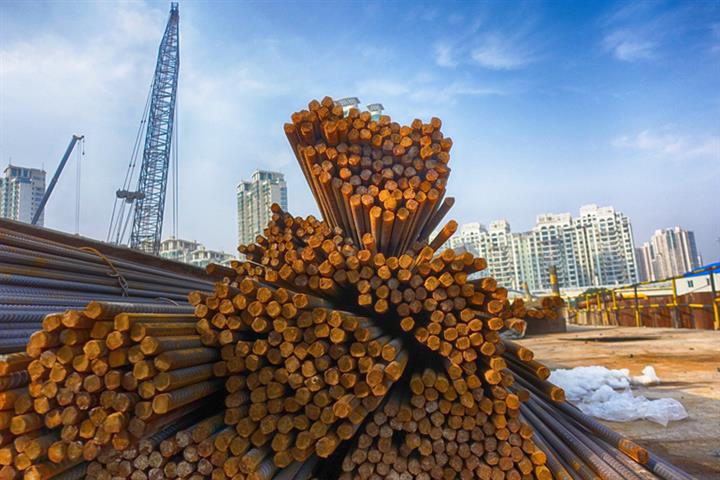 China’s Iron and Steel Demand Is Likely to Recover in 2023, CISA's Qu Says
China’s Iron and Steel Demand Is Likely to Recover in 2023, CISA's Qu Says(Yicai Global) Jan. 9 -- Demand for iron and steel in China is expected to pick up this year, the vice chairwoman of the China Iron and Steel Association said.
Demand is seen rising in 2023 thanks to the continuous optimization of Covid-19 prevention and control measures and the effect of policies to steady the economy, Qu Xiuli, who is also CISA’s secretary general, told an industry summit in Beijing yesterday.
Hit by the decline in production and higher energy prices, as well as the high base, the economic benefits of steel companies dropped last year, Qu noted. But the capital locked up in inventories and finished products also fell, accounts receivable rose, and the debt structure was optimized, she pointed out.
China likely produced 1 billion tons of crude steel last year, down 2.3 percent from 2021, according to CISA.
The country's steel industry will be further consolidated this year through mergers and reorganization, Qu said, adding that the consolidation has been advancing in recent years thanks to supply-side and state-owned enterprise reforms.
The state assets regulator gave China Baowu Steel Group, the world's largest steelmaker by sales, approval on Dec. 21 to take over Sinosteel Group. Baowu Steel has also integrated many other SOEs, including Wuhan Iron and Steel, Ma'anshan Iron and Steel, Taiyuan Iron and Steel, Shandong Iron and Steel.
As production capacity is further integrated, consolidation will increase this year, said Wang Guoqing, director of the Lange Steel Research Center. Fewer companies will boost competition in of the industry, reduce disorderly competition, and help stabilize steel prices to a certain extent, he added.
The integration of laggard companies is also conducive to helping them focus on special market segments, strengthening their bargaining power, weakening the cyclical nature of the industry, and enabling more stable profits across the industry, Wang noted.
Editor: Futura Costaglione